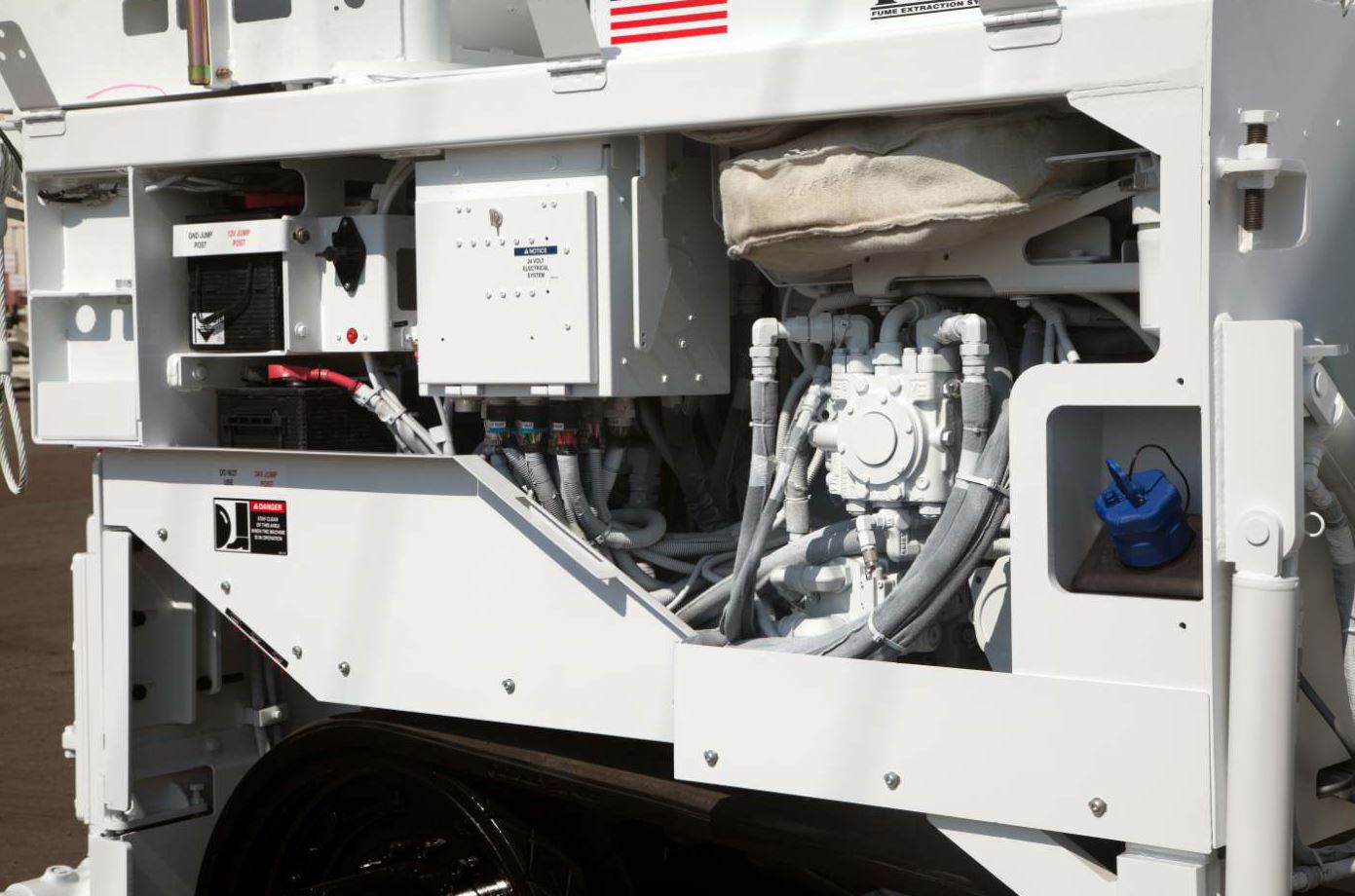Keep Your Paver Running Smoothly
BY Sue Luse, Roadtec

It can be easy to lose sight of the importance of daily machine maintenance because you don’t see direct profits from it. However, as we all know, a downed machine translates to lost profits, loss of productivity and increased labor and parts expenses.
You can spend a little time each day maintaining equipment or you can spend a lot of time—and money—repairing equipment later. Kyle Neisen, product manager for pavers & MTVs at Roadtec Inc., Chattanooga, shared some ways to keep your pavers running smoothly. He explained that there are ways an operator can prevent and limit downtime. These can be done before heading to the site, while working or at the end of the day.
Safety First
Neisen said, “First, safety is each person’s responsibility and each maintenance task is done not just to protect the machine, but also to protect the crew. Think about the safe way to do things—every time.”
Neisen continued, “Before starting work, do a complete walk-around of the machine. With the battery turned off, check all fluid levels and mechanical parts to ensure things are as expected.”
It is very important to turn off the battery each night. This is a safety measure to prevent potential fire. If there is an electrical storm, or downed wires, having the batteries disconnected prevents possible damage.
Throughout the Day

If the operator notices that a pump is giving high-pressure readings during the shift, that could indicate an immediate failure. Neisen said the operator would want to work with the foreman, supervisor or mechanic to let them know that the pump is showing signs of failure before it becomes a problem in the field.
Neisen said, “The number one reason for downtime is trucking issues and that is out of the operator’s control. Beyond that, downtime can be caused by breaking an auger or a broken chain or even a pump going down.” For each of these situations, if routine maintenance and inspections are done, these issues can be caught before they happen in the field.
When a pump goes down, usually it had previously shown signs that replacement was near, but those signs weren’t noticed or weren’t recognized by a skilled eye. Neisen commented, “A pump that needs to be replaced could have been diagnosed before it broke. Preventative maintenance could have been performed, especially with the Guardian System. We allow the operator to see pump pressures and know if something’s out of line, so that issues with pumps can be addressed before they become problems.”
If a pump is showing high pressures, that could indicate an immediate failure. Neisen added, “In this case you would want to work with the foreman, supervisor or mechanic and let them know that the pump is showing signs of failure.”
Then, the decision can be made to either continue production and risk damage to the machine, or pull the machine for maintenance and risk loss of production for the day. Either way there is a risk and a loss but, if the proper maintenance was done prior to the workday, this situation could have been avoided.
Cleanliness
At the end of the shift, wash down the machine. Approved solvent should be used to remove all material. Neisen said, “Properly cleaning a machine is the number one thing an operator can do to extend wear life. It also makes it easier to spot any potential issues early and prevent damage. Best of all, a clean machine feels better to operate every day!”
It’s important that your crew understands that cleanliness is important and valued. Allow plenty of time at the end of each day for clean up so your crew doesn’t feel rushed.
Stay in Control
Take care of maintenance issues in advance. If you wait until something goes wrong, you’ve lost control of your schedule, and are at the mercy of others to get back on track. When you’re in control, you can schedule maintenance during a slow time, which means you maximize productivity and profits during peak times.
